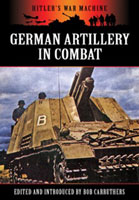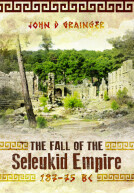The Hood Battalion (eBook)
Imprint: Pen & Sword Military
File Size: 15.9 MB (.epub)
Pages: 352
ISBN: 9781473819412
Published: 1st April 1995
The Royal Naval Division, of which the Hood Battalion formed part, was raised at the beginning of the First World War and was made up of officers and men of the Royal Naval Volunteer Reserve, stokers of the Royal Fleet Reserve and seamen of the Royal Naval Reserve. Its 'father' was Winston Churchill, then First Lord of the Admiralty; Mr Asquith, the Prime Minister, christened it 'Winston's Little Army'.
It was quite unlike any other formation in that these were soldiers who adhered to all the traditions and the practices of the Royal Navy, or if you like, sailors who went to war as soldiers. The Hood Battalion also attracted numerous officers of the highest calibre, among whom may be mentioned 'Oc' Asquith, the Prime Minister's son, Patrick Shaw-Stewart, said to be the most brilliant young man of his generation, Bernard Freyberg, and, most famous of all, the poet Rupert Brooke, who was to die so tragically in a foreign field.
The Hood Battalion saw some of the fiercest fighting of the First World War, particularly at Antwerp, in the Gallipoli Campaign and then again on the Western Front at the Ancre, at Gavrelle, and at Passchendaele.
Len Sellers, whose interest in the Hood Battalion was first aroused when he discovered that his great-uncle had served with them, lets the participants tell their own story, having expended prodigious labour in unearthing the many first-hand accounts of the Hood's exploits included in this book. It is indeed a tale told by heroes.
Article as featured in by Robert Griffiths, Lenord Seller's The Hood Battalion mentioned in further reading
Your Family History, Spring 2017
Leonard Sellers’s great-uncle, Albert Walls, was a fleet reserve stoker who found himself drafted into the RND’s Hood Battalion in August 1914: less than a year later, he was one of those who perished amid the squalor of Gallipoli. To learn more about his great-uncle and his fate, Sellers began delving into the history of the RND. The stories which he uncovered, and his conversations with Joseph Murray, one of the last survivors of the division, form the content of this book, which was first published in 1995 and has now been reprinted three times. The book is one of the most readable and illuminating accounts of soldiering in World War I.
Australian Naval Institute
Sellers does not discuss strategy or tactics but leads the reader from the division’s depot at Crystal Palace in south London and training camps at Betteshanger in Kent and at Blandford in Dorset through the chaos at Antwerp, the agonies on the Achi Baba, and the mud and the blood of Flanders.
Like a medieval mystery play, each scene is complete in itself, with Sellers setting the scene and the men of the Hood Battalion telling their tales, until the final tableau, when the RND parades for the last time and marches into history and into memory.
The book is a mine of information and case studies for those interested in the performance of individuals and small units on the battlefield as well as for those studying the campaigns as historical events. The battalion muster lists are a boon for genealogists, and students of literature will find much over which to ponder in the account of the final days of the poet, Sub Lt Rupert Brooke, and in the poems of other officers and men of the battalion. For the general reader, The Hood Battalion is a gripping yarn, and it is worth being gripped.
Leonard Sellers has created a very well written divisional history but also in the same sense has given the book a more human feel by using poems and personal extracts in this immaculate book.
Argunners - Militaria & War History Magazine
A very welcome reissue of a book.
Military Historical Society
The Hood Battalion is without question one of the classic books concerning the First World War.
The Gallipolian
This excellent battalion history, .... is everything you could wish for in a unit narrative. .... this is an indispensable volume and as good as it gets. Words and research aside, there are also some great illustrations and good clear maps of where the battalion fought. Highly recommended.
Amazon
This book has been expertly researched and leaves the story of the battalion to the people involved. Leonard Sellers has done an exceptional job at finding the first-hand accounts of the men who fought those battles and tells their story very well.
Essex Life Magazine
One of the most readable accounts of a unit's fortunes in the First World War.
Southend Echo

















